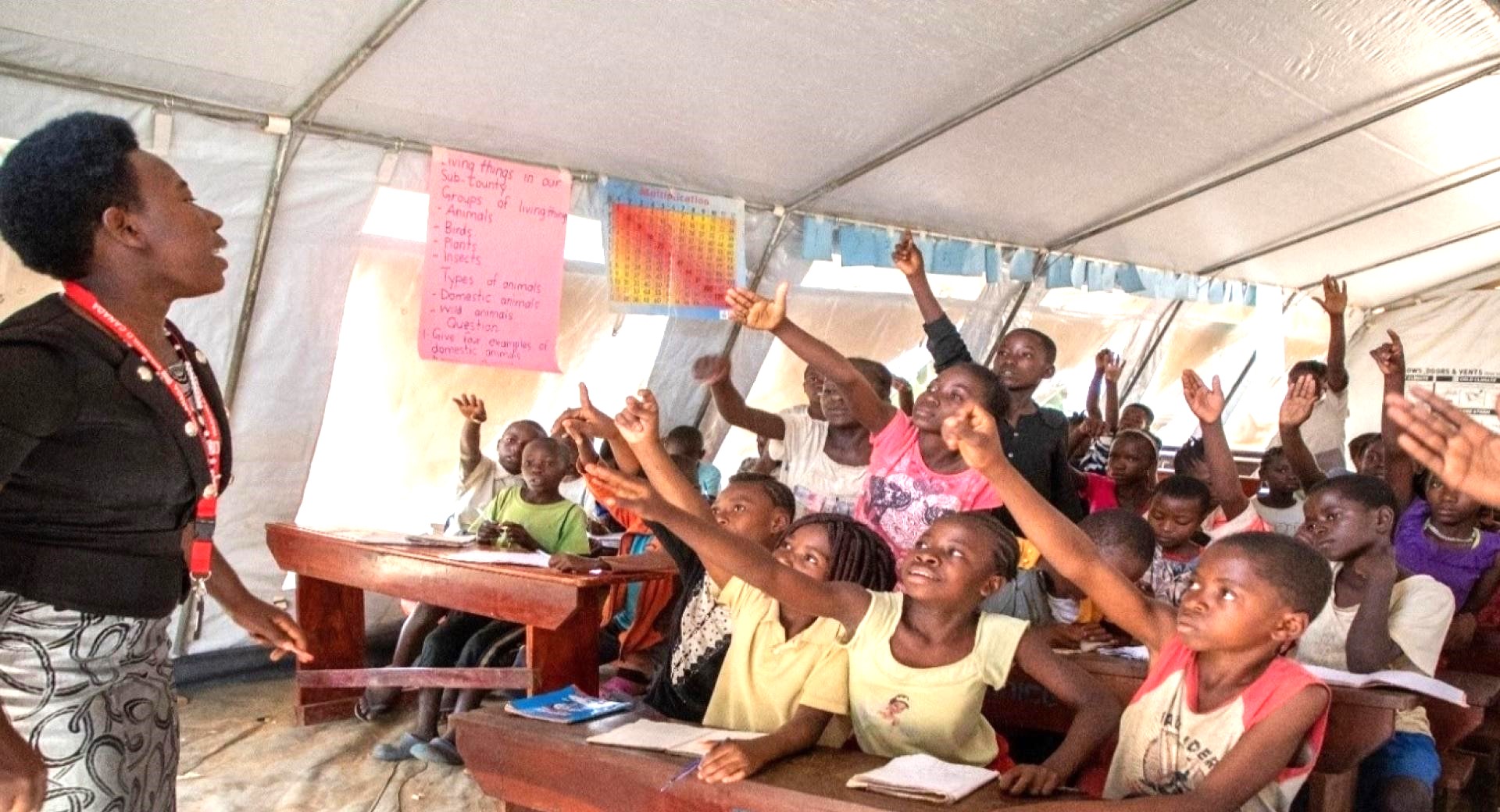Education Cannot Wait Renews Multi-Year Resilience Programme in Uganda with US$25 Million in Catalytic Funding Investment; Calls on Donors to Scale-Up Support

ECW total funding to Uganda tops US$75 million. New investment delivered by Save the Children and UNHCR in partnership with Government of Uganda will reach 122,000 refugee and host community children. US$180 million funding gap remains as partners come together to address Africa’s largest refugee crisis.
In response to Africa’s largest refugee crisis, Education Cannot Wait (ECW) today announced US$25 million in catalytic funding to expand the Fund’s Multi-Year Resilience Programme, which continues to bridge the humanitarian-development nexus in Uganda. Total ECW funding in Uganda now tops US$75 million.
The extended three-year programme will be delivered by Save the Children and UNHCR, in partnership with the Government of Uganda, and will support the inclusion in the national education system of more than 122,000 refugees. These children and those in host-communities in Uganda will receive the safety, hope and opportunity of quality, inclusive education.
The new programme seeks to catalyse US$180 million in aligned funding to deliver on the overall objectives outlined in Uganda’s Education Response Plan for Refugees and Host Communities II, the Government’s bold and continued commitment to the inclusion of refugee children and adolescents in its education system.
The scaled-up investment builds on the impact of ECW’s first Multi-Year Resilience Programme in Uganda, which enrolled 240,000 girls and boys into formal and non-formal education, built and rehabilitated 225 classrooms, provided learning materials for close to 150,000 children, and ensured bespoke educational supports for girls, children with disabilities and learners impacted by the COVID-19 pandemic.
“At this year’s High-Level Financing Conference, world leaders stepped up with US$826 million in commitments to ECW. We must build on that support and ensure that inclusive, quality education through humanitarian-development coherence in places like Uganda are fully funded. This is an investment in sustainable economic and social development for those left furthest behind,” said Yasmine Sherif, Executive Director of Education Cannot Wait, the UN’s global fund for education in emergencies and protracted crises.
Uganda hosts more than 1.5 million refugees, with 798,000 child refugees. Since January 2022, there have been over 84,000 new arrivals in Uganda, primarily from South Sudan and the Democratic Republic of the Congo, where ECW also supports education interventions.
While the Government of Uganda has taken significant steps to include refugees in the provision of social services, including education, the influx of refugees is putting an additional strain on resources already compounded by the COVID-19 pandemic, putting girls and boys at increased risks of falling behind, dropping out, early marriage, gender-based violence and other violations of their human rights.
“Save the Children welcomes Education Cannot Wait’s generous and continued support towards the delivery of the Uganda Education Response Plan, which will ensure that children from both refugee and host communities are able to continue accessing safe and quality education. Quality education is a right of every child, and a foundation for their future. We look forward to continuing to support children and their communities together with the civil society partners in Uganda, including national and local organizations,” said Dragana Strinic, Save the Children Country Director Uganda.
“I am thrilled to see the Education Cannot Wait fund extend its Multi-Year Resilience Programme in Uganda. This will provide the opportunity for quality, inclusive education to more than 122,000 refugee and host community children and strengthen the systems for sustainability,” said Matthew Crentsil, the UNHCR Country Representative. “The programme will not only bridge the gap in education but will also help to ensure the rights and pave the way to a bright future for thousands of Ugandan and refugee students.”
A significant number of school-aged refugee children are out of school in Uganda. More than half of refugee early learners (aged 3-5) are out of school. Approximately 27% of girls and 19% of boys are left out of primary education, while less than 5% of girls and just 10% of boys will make it into secondary school.
The expanded programme focuses on access, quality of delivery, and the strengthening of systems in support of inclusion across Uganda’s education system. The investment will address barriers to quality formal and non-formal education by building and rehabilitating schools and providing children with mental health and psychosocial support. To improve the quality of education, the programme strives to recruit, train and deploy teachers in the least serviced areas of the country.
Finally, in building a long-term sustainable solution, the programme improves coordination and management of education services through partnerships with the government, civil society, UN agencies, donors, including education development donors, and other key stakeholders. In addressing the climate crisis, the investment advances disaster risk reduction and contingency planning for education.
In all 60% of programme beneficiaries are girls and 14% are children with disabilities. Of the 122,000 children and adolescents reached through the programme, approximately 21,000 will receive early childhood education supports, 92,000 primary education, 9,000 secondary education and 6,000 accelerated education programmes.
For Press Inquiries:
Anouk Desgroseilliers:
adesgroseilliers@un-ecw.org
+1-917-640-6820
Kent Page:
kpage@unicef.org
+1-917-302-1735

